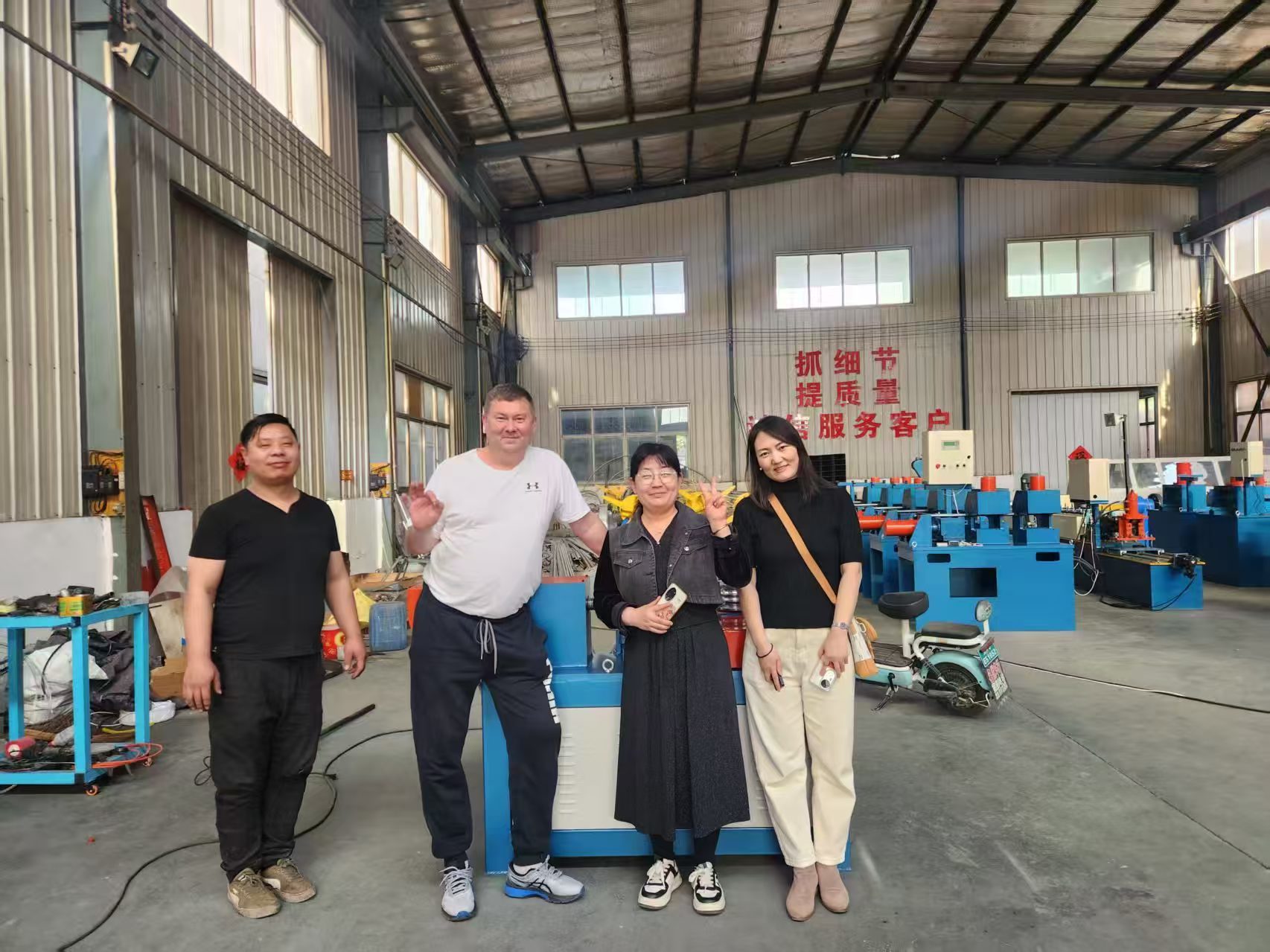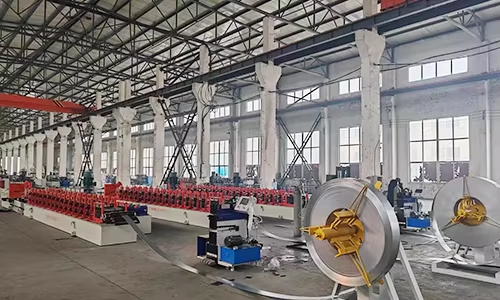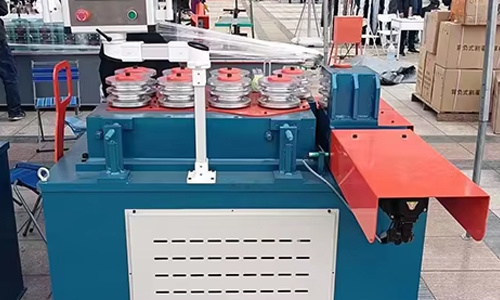The Transformative Role of Photovoltaic Rain Gutter Roll Forming Machines in the Construction Industry
2025-04-22
The Transformative Role of Photovoltaic Rain Gutter Roll Forming Machines in the Construction Industry
Table of Contents
1. Introduction to Photovoltaic Rain Gutter Roll Forming Machines
2. Understanding the Technology Behind Roll Forming Machines
3. Importance of Photovoltaic Rain Gutters in Construction
4. Benefits of Using Photovoltaic Rain Gutter Roll Forming Machines
5. A
The Transformative Role of Photovoltaic Rain Gutter Roll Forming Machines in the Construction Industry
Table of Contents
- 1. Introduction to Photovoltaic Rain Gutter Roll Forming Machines
- 2. Understanding the Technology Behind Roll Forming Machines
- 3. Importance of Photovoltaic Rain Gutters in Construction
- 4. Benefits of Using Photovoltaic Rain Gutter Roll Forming Machines
- 5. Applications in Modern Construction
- 6. The Impact on the Construction Industry
- 7. Future Trends in Photovoltaic Technology and Construction
- 8. Frequently Asked Questions
- 9. Conclusion
1. Introduction to Photovoltaic Rain Gutter Roll Forming Machines
The construction industry is undergoing a **significant transformation**, driven by advancements in technology and a growing emphasis on sustainability. Among these innovations, **photovoltaic rain gutter roll forming machines** stand out as a game-changer. These machines are not just tools; they represent a burgeoning trend towards integrating renewable energy solutions into traditional construction practices. By embedding solar energy capabilities into rain gutters, they provide a dual function: effective water management and renewable energy generation.
2. Understanding the Technology Behind Roll Forming Machines
Roll forming is a **highly efficient manufacturing process** that involves feeding a continuous strip of metal through a series of rollers. Each roller progressively shapes the metal until it reaches the desired profile. **Photovoltaic rain gutter roll forming machines** take this process a step further by integrating photovoltaic cells into the gutter's design.
These machines operate with precision and speed, allowing for the mass production of customized rain gutters that can efficiently harness solar energy. The integration of photovoltaic technology means that these gutters can generate electricity, contributing to a building's overall energy needs while also managing rainwater effectively.
Advantages of Roll Forming Technology
- **Cost-Effectiveness**: Roll forming is less labor-intensive compared to other manufacturing processes, resulting in lower production costs.
- **Versatility**: This technology accommodates a wide range of materials and designs, making it adaptable for various construction needs.
- **Minimal Waste**: The continuous nature of roll forming reduces material waste, aligning with sustainable manufacturing practices.
3. Importance of Photovoltaic Rain Gutters in Construction
The integration of **photovoltaic rain gutters** into construction projects is crucial for several reasons. Firstly, they address the pressing need for sustainable building practices. As the world grapples with climate change, construction industries are increasingly seeking ways to reduce their carbon footprint. Photovoltaic rain gutters support this initiative by generating clean energy from sunlight, which can be used to power various building systems, thus reducing reliance on fossil fuels.
Secondly, they enhance energy efficiency. Buildings equipped with these systems can significantly lower their energy bills by utilizing the electricity generated from their own gutters. This not only promotes cost savings but also adds value to the property.
4. Benefits of Using Photovoltaic Rain Gutter Roll Forming Machines
The benefits of utilizing **photovoltaic rain gutter roll forming machines** extend beyond energy efficiency. Here are several key advantages:
4.1 Enhanced Energy Independence
By producing their own electricity, buildings become less dependent on external energy sources. This independence is particularly valuable in regions prone to power outages or fluctuating energy prices.
4.2 Environmental Sustainability
Incorporating renewable energy systems like photovoltaic gutters aligns with global sustainability goals. It contributes to a reduction in greenhouse gas emissions, demonstrating a commitment to environmental stewardship.
4.3 Increased Property Value
Properties that feature energy-efficient technologies are often more attractive to buyers and tenants. The ability to generate clean energy can increase a property’s market value, making it a worthwhile investment.
4.4 Lower Maintenance Costs
Photovoltaic rain gutters are designed to last, requiring minimal maintenance. This durability translates into lower long-term costs for building owners.
4.5 Aesthetic Appeal
Modern designs of photovoltaic rain gutters can enhance the visual appeal of a building. They can be customized to blend seamlessly with various architectural styles, making them an attractive option for builders and architects.
5. Applications in Modern Construction
The applications of photovoltaic rain gutter roll forming machines are vast and varied. They are suitable for both residential and commercial construction projects.
5.1 Residential Developments
In residential areas, photovoltaic rain gutters are becoming increasingly popular among eco-conscious homeowners. They not only provide necessary water drainage but also contribute to the home's energy supply, leading to lower utility bills.
5.2 Commercial Buildings
For commercial properties, the scales of energy savings can be significant. Large rooftops equipped with photovoltaic rain gutters can generate substantial amounts of electricity, which can be used to power office equipment and lighting.
5.3 Infrastructure Projects
Public infrastructure projects, such as schools and hospitals, can benefit greatly from the integration of photovoltaic rain gutters. By reducing energy costs, these projects can allocate funds to other essential services.
5.4 Retrofitting Existing Buildings
The versatility of these machines allows for retrofitting existing structures with new photovoltaic rain gutter systems. This adaptability helps older buildings enhance their energy efficiency without extensive renovations.
6. The Impact on the Construction Industry
The advent of photovoltaic rain gutter roll forming machines is reshaping the construction landscape. Their impact is felt in several areas:
6.1 Shifting Industry Standards
As more construction companies adopt these technologies, industry standards are evolving. There’s a growing expectation for new buildings to incorporate sustainable energy solutions, pushing traditional builders to innovate.
6.2 Economic Opportunities
The rise of photovoltaic rain gutter manufacturing opens up new economic opportunities in terms of local job creation and technological advancements in manufacturing processes.
6.3 Policy Influence
Governments are increasingly implementing regulations and incentives for sustainable construction practices. Photovoltaic rain gutters align with these policies, encouraging further investment in renewable energy technologies.
7. Future Trends in Photovoltaic Technology and Construction
Looking ahead, several trends are likely to shape the future of photovoltaic rain gutter roll forming machines and their role in construction.
7.1 Advancements in Photovoltaic Technology
Ongoing research and development aim to improve the efficiency of photovoltaic cells. As technology advances, the energy output from rain gutters will continue to increase, enhancing their appeal.
7.2 Integration with Smart Technologies
The future may see greater integration of photovoltaic gutters with smart home and building systems. This synergy could enhance energy management and maximize efficiency.
7.3 Increased Market Penetration
As awareness of the benefits grows, more builders and homeowners are likely to adopt photovoltaic rain gutters, leading to widespread market penetration and acceptance.
8. Frequently Asked Questions
8.1 What are photovoltaic rain gutter roll forming machines?
Photovoltaic rain gutter roll forming machines are specialized equipment that produces rain gutters embedded with solar panels, allowing for energy generation while managing rainwater.
8.2 How do photovoltaic rain gutters work?
These gutters harness solar energy through embedded photovoltaic cells, converting sunlight into electricity that can be used by the building.
8.3 Are photovoltaic rain gutters cost-effective?
Yes, while the initial investment may be higher, the long-term savings on energy bills and potential property value increase make them a cost-effective choice.
8.4 How durable are photovoltaic rain gutters?
Photovoltaic rain gutters are designed to withstand various weather conditions and require minimal maintenance, offering durability over time.
8.5 Can existing buildings be retrofitted with photovoltaic rain gutters?
Yes, existing structures can be retrofitted to include photovoltaic rain gutters, enhancing their energy efficiency without extensive renovations.
9. Conclusion
Photovoltaic rain gutter roll forming machines are at the forefront of a significant shift within the construction industry, merging the essential functions of rainwater management with the necessity for renewable energy generation. As the world continues to pivot towards sustainability, these innovative machines will play a pivotal role in shaping energy-efficient buildings that not only meet today’s demands but also pave the way for a greener future. By embracing this technology, the construction industry can help meet global sustainability goals while providing economic benefits and enhancing property values.
Key words:
RELATED INFORMATION
A customer from Inekhusko, Russia, took a 10-hour flight with multiple transfers to visit our factory and inspect the equipment they had previously ordered from our company.Our foreign trade staff warmly received the customer.
2025-04-24
Photovoltaic bracket equipment is a special bracket planned for the placement, installation.
2024-05-22
The control method of greenhouse pipe bender and the CNC processing of pipe bender
The greenhouse pipe bender has a fuel tank cap. We can take advantage of the environment where the oil in.
2024-05-22








